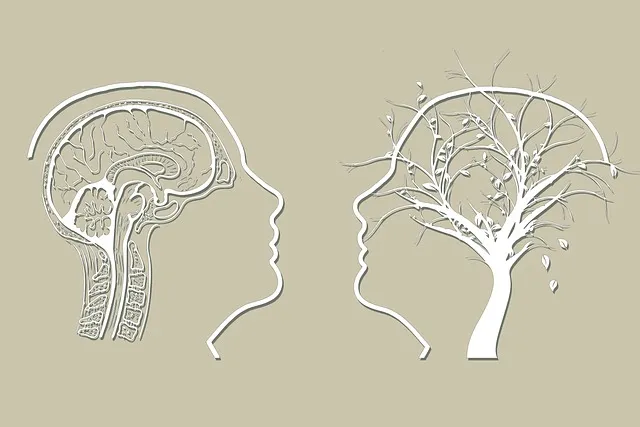Mental wellness self-assessment tools, like those offered by the Kaiser Permanente mental health department in Boulder, are vital for early detection and prevention of mental health issues. These tools provide a structured framework for self-reflection, enabling users to identify triggers, develop coping mechanisms, and manage their mental wellness proactively. The department's accessible services, including phone support and holistic practices like mindfulness meditation, cater to diverse needs. Incorporating technology, cultural competency training, and data analytics ensures these tools remain effective and tailored to individual requirements.
Mental wellness self-assessment tools play a crucial role in identifying and managing our emotional well-being. This article delves into the development of such tools, highlighting key aspects like understanding their significance, the innovative work of Kaiser Permanente Boulder’s mental health department, and the integration of technology for accessible evaluations. We’ll explore effective strategies for personalized care and continuous improvement, drawing insights from the expertise of the Kaiser Permanente Boulder phone number (503-442-6701) to empower individuals in navigating their mental wellness journeys.
- Understanding Mental Wellness Self-Assessment Tools
- Kaiser Permanente Boulder's Role in Mental Health
- Developing Effective Assessment Tools for Individualized Care
- Integrating Technology for Accessible Mental Wellness Evaluations
- Measuring Success and Continuous Improvement Strategies
Understanding Mental Wellness Self-Assessment Tools

Mental wellness self-assessment tools are designed to help individuals gain a deeper understanding of their emotional and psychological state. These tools, developed by experts like those found in the Kaiser Permanente mental health department Boulder, play a crucial role in early detection and prevention of mental health issues. By providing a structured framework for self-reflection, they empower users to identify signs of stress, anxiety, or depression, and take proactive measures towards better mental wellness.
Empathy Building Strategies, such as those offered through these tools, focus on enhancing self-awareness and fostering positive mood management techniques. They encourage individuals to recognize their triggers, develop coping mechanisms for Anxiety Relief, and cultivate a supportive mindset. Regular utilization of these self-assessment tools can be transformative, enabling people to take charge of their mental health and lead more fulfilling lives.
Kaiser Permanente Boulder's Role in Mental Health

Kaiser Permanente Boulder stands as a beacon of mental wellness support in the region. Their dedicated mental health department offers a comprehensive range of services, accessible via their phone line, tailored to meet diverse individual needs. This healthcare provider’s commitment extends beyond traditional therapy; they actively promote Burnout Prevention Strategies for Healthcare Providers, emphasizing work-life balance and self-care. Through community workshops and online resources, Kaiser Permanente Boulder fosters an environment that encourages open conversations about mental health.
The organization integrates practices like Mindfulness Meditation and Positive Thinking into their wellness regimen, recognizing their impact on reducing stress and improving overall well-being. By providing these tools, they empower individuals to take charge of their mental health proactively. This holistic approach not only benefits patients but also contributes to a healthier, more resilient community.
Developing Effective Assessment Tools for Individualized Care

Developing effective mental wellness self-assessment tools is a cornerstone of personalized care, as highlighted by the successful practices at the Kaiser Permanente mental health department in Boulder. These tools play a pivotal role in understanding an individual’s unique needs and emotional well-being promotion techniques. By utilizing tailored assessments, healthcare professionals can design targeted interventions that address specific challenges. This individualized approach ensures that each patient receives guidance relevant to their experiences, whether it involves enhancing social skills training or providing journaling exercise guidance.
The process of creating these tools necessitates a comprehensive understanding of various mental wellness dimensions. Incorporating self-assessment components that delve into symptoms, triggers, and coping mechanisms allows for a holistic evaluation. This data enables professionals to offer evidence-based strategies and monitor progress effectively. With the right assessment framework, individuals can embark on their journey towards improved mental health, fostering a vibrant emotional landscape.
Integrating Technology for Accessible Mental Wellness Evaluations

Integrating technology into mental wellness evaluations offers a promising path to enhancing accessibility and convenience for individuals seeking support. Online platforms and mobile applications can provide users with easy-to-use self-assessment tools, allowing them to monitor their mental health from the comfort of their homes. This approach is particularly relevant in areas like Boulder, where the Kaiser Permanente mental health department phone number serves as a valuable resource. By digitizing evaluation processes, these tools can reach a broader audience, including those who may face barriers to accessing traditional healthcare services.
The development of such technology should consider cultural competency training for healthcare providers, ensuring that digital resources cater to diverse populations. This includes incorporating Trauma Support Services and Burnout Prevention Strategies for Healthcare Providers to address the unique needs of individuals with traumatic experiences or high-stress professions. With careful design, these innovative mental wellness self-assessment tools can contribute to a more inclusive and effective support system.
Measuring Success and Continuous Improvement Strategies

Measuring success is a critical component of developing any self-assessment tool. In the context of mental wellness, success can be defined by improvements in key areas such as reduced symptoms of anxiety and depression, enhanced coping mechanisms, increased self-awareness, and improved overall quality of life. At the Kaiser Permanente mental health department in Boulder, we leverage data analytics to track user progress over time, ensuring that our tools remain effective and aligned with the evolving needs of our clients. By regularly reviewing usage statistics, feedback from users, and clinical outcomes, we can identify areas for improvement and make necessary adjustments.
Continuous improvement strategies are integral to maintaining the relevance and efficacy of self-assessment tools. We employ a cyclical approach, involving regular updates based on user feedback, the latest research in mental health, and best practices from leading institutions like Kaiser Permanente. For instance, integrating Burnout Prevention techniques into our assessments has been well-received, helping users manage stress and avoid exhaustion. Similarly, incorporating Trauma Support Services resources ensures that individuals dealing with past traumas have access to tailored guidance. Additionally, focusing on Self-Esteem Improvement exercises reflects the holistic nature of mental wellness, fostering a positive self-image and resilience among users.
Mental wellness self-assessment tools have evolved significantly, with organizations like Kaiser Permanente Boulder’s mental health department playing a pivotal role in their development. By integrating technology and focusing on individualized care, they’ve made accessible evaluations that contribute to improved mental health outcomes. Continuous improvement strategies, measured through user feedback and success metrics, ensure these tools remain effective. For those seeking support, the Kaiser Permanente Boulder mental health department phone number offers a starting point for navigating personalized wellness solutions.






